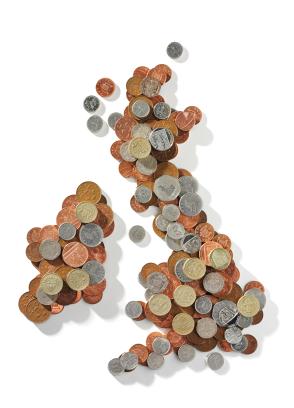
Bankers and bureaucrats have been trying since the worst period of the financial crisis to figure out a way to reduce the costs to taxpayers next time banks get into trouble.
One popular suggestion making the rounds is “contingent capital”, often also called “coco bonds”. That is, bonds that convert into equity when a bank gets into trouble. This means the bond-holders will have to become shareholders and not be bailed out by the tax payers.
“Coercion” Capital
INSEAD Finance Professor Theo Vermaelen has gone one step further, creating something called a COERC (Call Option Enhanced Reverse Convertible). It’s a bond that “coerces” the equity holders to pay back the bondholders in case of financial distress. Specifically, whenever a market-based measure of leverage increases above a trigger, the bonds will convert into equity. However, the conversion price will be significantly below the stock price corresponding with the trigger. At the same time, equity holders get pre-emptive rights (options) to buy the shares at the same price as the bondholders. In order to avoid massive dilution, equity holders will exercise these options and repay the debt. As a result bondholders will lend money at very low interest rates as they know they will be repaid in case of financial distress.
Market-based triggers have been criticized because they encourage short sellers to buy the bond and short the stock, forcing economically unjustified dilution. So what’s to keep bond holders from shorting the stock, pulling the market-based trigger, and walking away with the company at bargain-basement prices?
“The great thing about the structure of the Coerc ,” Vermaelen says, “is that if you short the stock, the company will not deliver the shares to cover your short position. The shares will be purchased by the equity holders so that you have to cover by buying shares in the market, making short selling unattractive. In other words, we want to make sure that any undesirable conversion can be undone by giving shareholders the right of first refusal. This essentially means that you cannot do anything to the stockholders against their will: if we don’t want you to own the shares we have the right to pay you back and buy the shares ourselves."

So far banks don’t seem very enthusiastic about the Coerc: they prefer triggers based on capital ratios, which are based on book values, not market values.
“If you look at the data, because capital ratios are only calculated every quarter and can be manipulated (unlike market values of leverage) none of the capital ratio triggers would have gone off during the recent crisis. This of course defeats the whole purpose of issuing contingent capital. Fortunately, some regulators seem to understand this,” says Vermaelen, who continues to defend his innovation by making presentations across the continent to regulators and bankers.
To read more on this research, click here.
-
View Comments
-
Leave a Comment



No comments yet.